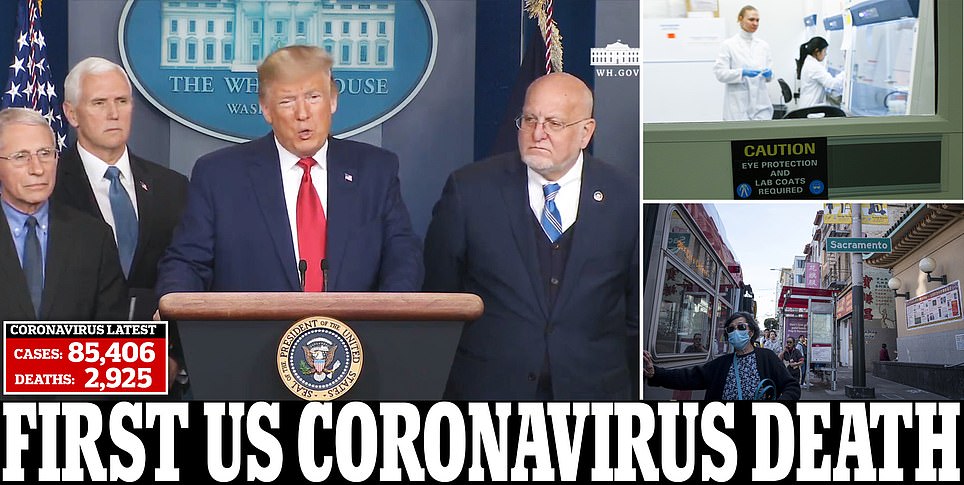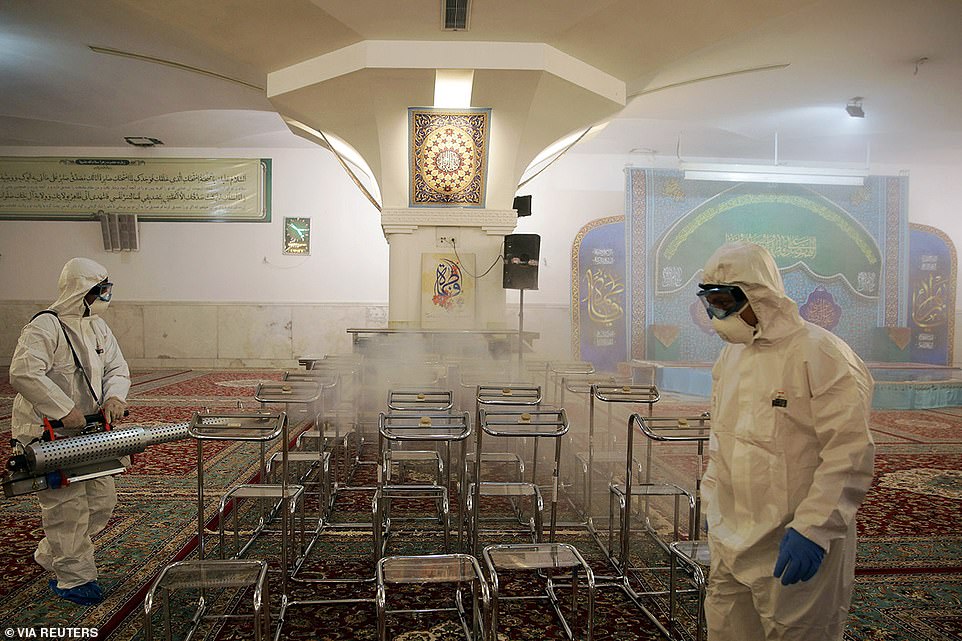From Harvard Health Blog. As coronavirus spreads, many questions and some answers - Harvard Health Blog
Does the coronavirus spread person-to-person?
Yes, the virus can spread from one person to another, most likely through droplets of saliva or mucus carried in the air for up to six feet or so when an infected person coughs or sneezes, or through viral particles transferred when shaking hands or sharing a drink with someone who has the virus.
Often it’s obvious if a person is ill, but there have been some cases where people who did not yet feel sick had the virus and could spread it.
Basic steps for avoiding flu and other infections — including
steps for handwashing shown in this video — are likely to help stop the spread of this virus. The CDC has a
helpful list of preventive steps.
Quarantines and travel restrictions now in place in many counties, including the US, are also intended to help break the chain of transmission. Public health authorities like the CDC may recommend other approaches for people who may have been exposed to the virus, including isolation at home and symptom monitoring for a period of time (usually 14 days), depending on
level of risk for exposure. The CDC has
guidelines for people who have the virus to help with recovery and prevent others from getting sick.
What is the incubation period for the coronavirus?
An incubation period is the time between catching an illness and showing symptoms of the illness. Current estimates suggest that symptoms of COVID-19 usually appear within around five days or less in most cases, but the range could be between one and 14 days.
What are the symptoms of the new coronavirus?
Fever, dry cough, trouble breathing, and sometimes pneumonia are the common symptoms of COVID-19. There have been some reports of gastrointestinal symptoms (nausea, vomiting, or diarrhea) before respiratory symptoms occur, but this is largely a respiratory virus.
Those who have the virus may have no obvious symptoms (be asymptomatic) or symptoms ranging from mild to severe. In some cases, the virus is life-threatening or fatal.
Currently, it seems that most people who get sick will recover from COVID-19. Recovery time varies and, for people who are not severely ill, may be similar to the aftermath of a flulike illness. People with mild symptoms may recover within a few days. People who have pneumonia may take longer to recover (days to weeks). In cases of severe, life-threatening illness, it may take months for a person to recover, or the person may die.
Can people who are asymptomatic spread coronavirus?
A person who is asymptomatic may be shedding the virus and could make others ill. How often asymptomatic transmission is occurring is unclear.
Can the coronavirus live on fabric, carpet, and other soft surfaces? What about hard surfaces?
Currently, there’s no evidence that COVID-19, the new coronavirus, can be transmitted from soft surfaces like fabric or carpet to humans.
It’s possible that the virus could be on frequently-touched surfaces, such as a doorknob, although early information suggests viral particles would be likely to survive for
just a few hours, according to the WHO. This also assumes that someone who is sick with the virus has touched a surface after sneezing or coughing into their hand or rubbing their eye. That’s why
personal preventive steps like frequently washing hands with soap and water or an alcohol-based hand sanitizer, and wiping down often-touched surfaces with disinfectants or a household cleaning spray, are a good idea.
Should I wear a face mask to protect against coronavirus? Should my children?
Follow public health recommendations where you live. Currently, face masks are not recommended for the general public in the US. Your risk of catching the virus in the US is likely to be low, since there is little evidence of community transmission at this time. At this writing, only one confirmed case in the US is unrelated to travel to China or close contact with travelers from China. Even though there are some confirmed cases of COVID-19 in the US, you’re much more likely to catch and spread influenza (the flu). (So far this season, there have been nearly 30 million cases of flu and 17,000 deaths.)
Some health facilities require people to wear a mask under certain circumstances, such as if they have traveled from the city of Wuhan, China or surrounding Hubei Province, or have been in contact with people who did or with people who have confirmed coronavirus.
If you have respiratory symptoms like coughing or sneezing, experts recommend wearing a mask to protect others. This may help contain droplets containing any type of virus, including the flu, and protect close contacts (anyone within three to six feet of the infected person).
The CDC offers
more information about masks. The WHO offers
videos and illustrations on when and how to use a mask.
Should someone who is immunocompromised wear a mask?
If you are immunocompromised because of an illness or treatment, talk to your doctor about whether wearing a mask is helpful for you in some situations. We are currently in the middle of a flu epidemic in the US. By contrast, we have limited cases of COVID-19 and no evidence of sustained person-to-person transmission in our communities. At this time, it wouldn’t make sense for someone who is immunocompromised to wear a mask when in public to decrease risk for catching COVID-19. However, if your healthcare provider advises you to wear a mask when in public areas because you have a particularly vulnerable immune system, follow that advice. But if masking has not been recommended to you to protect against the flu and numerous other respiratory viruses, then it doesn’t make sense to me to advise wearing a mask to protect against COVID-19 at this time.
Should I accept packages from China?
There is no reason to suspect that packages from China harbor COVID-19. Remember, this is a respiratory virus similar to the flu. We don’t stop receiving packages from China during their flu season. We should follow that same logic for this novel pathogen.
Can I catch the coronavirus by eating food prepared by others?
We are still learning about transmission of COVID-19. It’s not clear if this is possible, but if so it would be more likely to be the exception than the rule. That said, COVID-19 and other coronaviruses have been detected in the stool of certain patients, so we currently cannot rule out the possibility of occasional transmission from infected food handlers. The virus would likely be killed by cooking the food.
Should I travel on a plane with my children?
Keep abreast of
travel advisories from regulatory agencies and understand that this is a rapidly changing situation. At this writing, most travel throughout the world is unrestricted (exceptions include China and now South Korea). I recently flew with my son and his friend and did not bring any type of masks.
Of course, if anyone has a fever and respiratory symptoms, that person should
not fly if at all possible, but anyone who has a fever and respiratory symptoms and flies anyway should wear a mask on an airplane.
Is there a vaccine available for coronavirus?
No vaccine is available, although scientists are working on vaccines. In 2003, scientists tried to develop a vaccine to prevent
SARS but the epidemic ended before the vaccine could enter clinical trials.
Is there a treatment available for coronavirus?
Currently there is no specific antiviral treatment for this new coronavirus. Treatment is therefore supportive, which means giving fluids, medicine to reduce fever, and, in severe cases, supplemental oxygen. People who become critically ill from COVID-19 may need a respirator to help them breathe. Bacterial infection can complicate this viral infection. Patients may require antibiotics in cases of bacterial pneumonia as well as COVID-19.
Antiviral treatments used for HIV and other compounds are being investigated.
There’s no evidence that supplements, such as vitamin C, or probiotics will help speed recovery.
How is this new coronavirus confirmed?
A specialized test must be done to confirm that a person has COVID-19. Most testing in the US has been performed at the CDC. However, the goal is to send test kits to state laboratories so testing can be performed locally.
How deadly is this coronavirus?
We don’t yet know. However, signs suggest that many people may have had mild cases of the virus and recovered without special treatment.
Very early in this epidemic, it looked like about 20% of cases were severe. People developed acute respiratory distress syndrome (ARDS), which causes tiny air sacs in the lungs to fill with fluid, crowding out air so that not enough oxygen can reach the bloodstream.
As of February 25, 2020, the reported confirmed cases and deaths in China suggest the mortality rate is roughly 3%. It is important to remember that early on in an epidemic there is a “tip of the iceberg” phenomenon where we overestimate more severe cases and mild or asymptomatic cases go unrecognized, so the mortality seems higher than the reality. That may be happening when we speak of up to 3% mortality. By contrast, SARS had a mortality rate of around 10%; the MERS mortality rate is closer to 30% to 40%. There appear to be many more COVID-19 cases confirmed than there were with SARS and MERS.
What should people do if they think they have coronavirus or their child does? Go to an urgent care clinic? Go to the ER?
If you have a health care provider or pediatrician, call them first for advice. If you live in the US, it’s far more likely to be the flu or another viral illness.
If you do not have a doctor and you are concerned that you or your child may have coronavirus, contact your
local board of health. They can direct you to the best place for evaluation and treatment in your area.
Only people with symptoms of severe respiratory illness should seek medical care in the ER. Severe symptoms are rapid heart rate, low blood pressure, high or very low temperatures, confusion, trouble breathing, severe dehydration. Call ahead to tell the ER that you are coming so they can be prepared for your arrival.
Can people who recover from the coronavirus still be carriers and therefore spread it?
People who get COVID-19 need to work with providers and public health authorities to determine when they are no longer contagious.
Reliable resources
Also, read our earlier blog posts on coronavirus:


